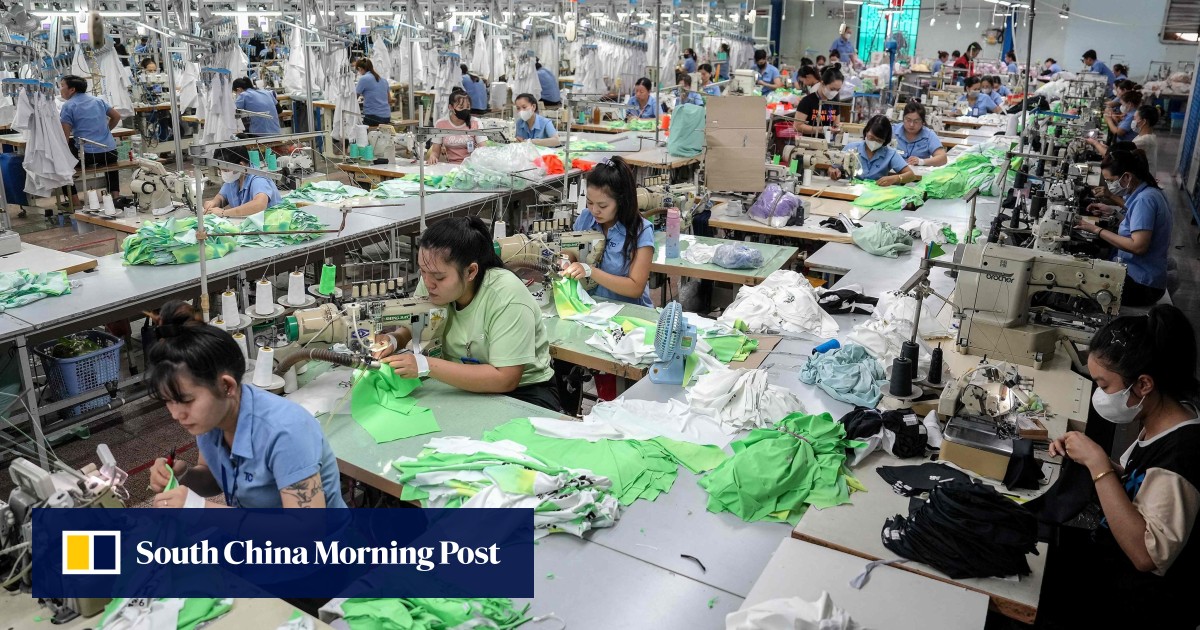
The Unseen Casualties of Trade Wars: Vietnam’s Shattered Dreams
The global economy, a complex tapestry woven from intricate trade relationships, can unravel with surprising speed. A seemingly isolated trade dispute can send shockwaves across continents, leaving behind a trail of unforeseen consequences and shattered dreams. Nowhere is this more evident than in Vietnam, a nation once hailed as a rising economic star, now struggling under the weight of unexpected tariffs.
For years, Vietnam experienced a remarkable economic boom. Foreign investment poured in, fueled by a young, dynamic workforce and a strategic geographic location. The country became a global manufacturing hub, particularly in the garment and footwear industries, attracting multinational corporations seeking lower production costs. This prosperity trickled down, fostering a burgeoning middle class and a sense of optimism for the future. Homeownership, once a distant aspiration for many, became a tangible goal. Individuals like Hoang Cuong, who invested his savings in the stock market with dreams of owning a Hanoi apartment, embodied this hope.
However, this meticulously crafted economic narrative has been disrupted. The imposition of significant tariffs, a seemingly distant geopolitical event, has had a devastating impact. These tariffs, designed to protect domestic industries in other countries, have effectively crippled Vietnam’s export sector. The resulting 46% tax on certain exports has proved insurmountable for many Vietnamese businesses. This isn’t a minor inconvenience; it’s an existential threat.
The immediate effect is a dramatic slowdown in economic growth. Factories are shutting down, jobs are being lost, and the once-booming economy is sputtering. The ripple effect is devastating, impacting not just large corporations but also small businesses and individual livelihoods. The dreams of owning a home, of a secure future, are fading for many. Hoang Cuong’s investment portfolio, once a symbol of hope, now reflects a harsh reality – the economic gains of the past few years are rapidly evaporating.
The situation highlights a crucial flaw in the simplistic view of trade wars: the collateral damage. While the initial intention may be to protect domestic industries, the consequences often extend far beyond the intended targets. Vietnam, a country that played by the rules of international trade, is now paying a steep price for a conflict it didn’t instigate.
The crisis underscores the interconnectedness of the global economy and the unpredictable nature of protectionist policies. It serves as a stark reminder that economic prosperity is not a guaranteed outcome, and that even nations perceived as economic success stories can be vulnerable to unforeseen external shocks.
The future for Vietnam remains uncertain. While the government is scrambling to implement mitigation strategies, the long-term impact of these tariffs remains to be seen. The story of Hoang Cuong and countless others is a cautionary tale, a stark illustration of how the seemingly abstract machinations of international trade can directly and profoundly affect individual lives and shatter hopes for a better future. The global community must learn from this experience and recognize the far-reaching consequences of protectionist policies before more dreams are crushed under the weight of unintended consequences.



Leave a Reply